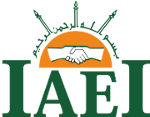The Effect of Sharia Supervisory Board Characteristics on Maqashid Sharia Index
DOI:
https://doi.org/10.28918/ijibec.v4i1.2348Keywords:
sharia supervisory board, maqashid sharia, education, justice, welfareAbstract
the purpose of this study is to obtain empirical evidence regarding the influence of the characteristics of the Sharia Supervisory Board on the maqashid sharia index on sharia banks in Indonesia. The variables used in this study are the characteristics of the sharia supervisory board and maqashid sharia index. The characteristics of sharia supervisory boards are the educational background of sharia supervisory boards, number of sharia supervisory board meetings, concurrent positions of sharia supervisory boards, and indicators of the number of sharia supervisory boards. The maqashid sharia index uses indicators of welfare (maal), education (tahdzib al fard), and justice ('adl). The data used are secondary data in the form of annual reports of Islamic banks in Indonesia for a 5 years period (2013-2017). The research sample of eleven Islamic banks. Data analysis technique used is Partial Least Square (PLS). The findings of the study were successful in proving the negative influence of the number and educational background of the sharia supervisory board on the maqashid sharia index














